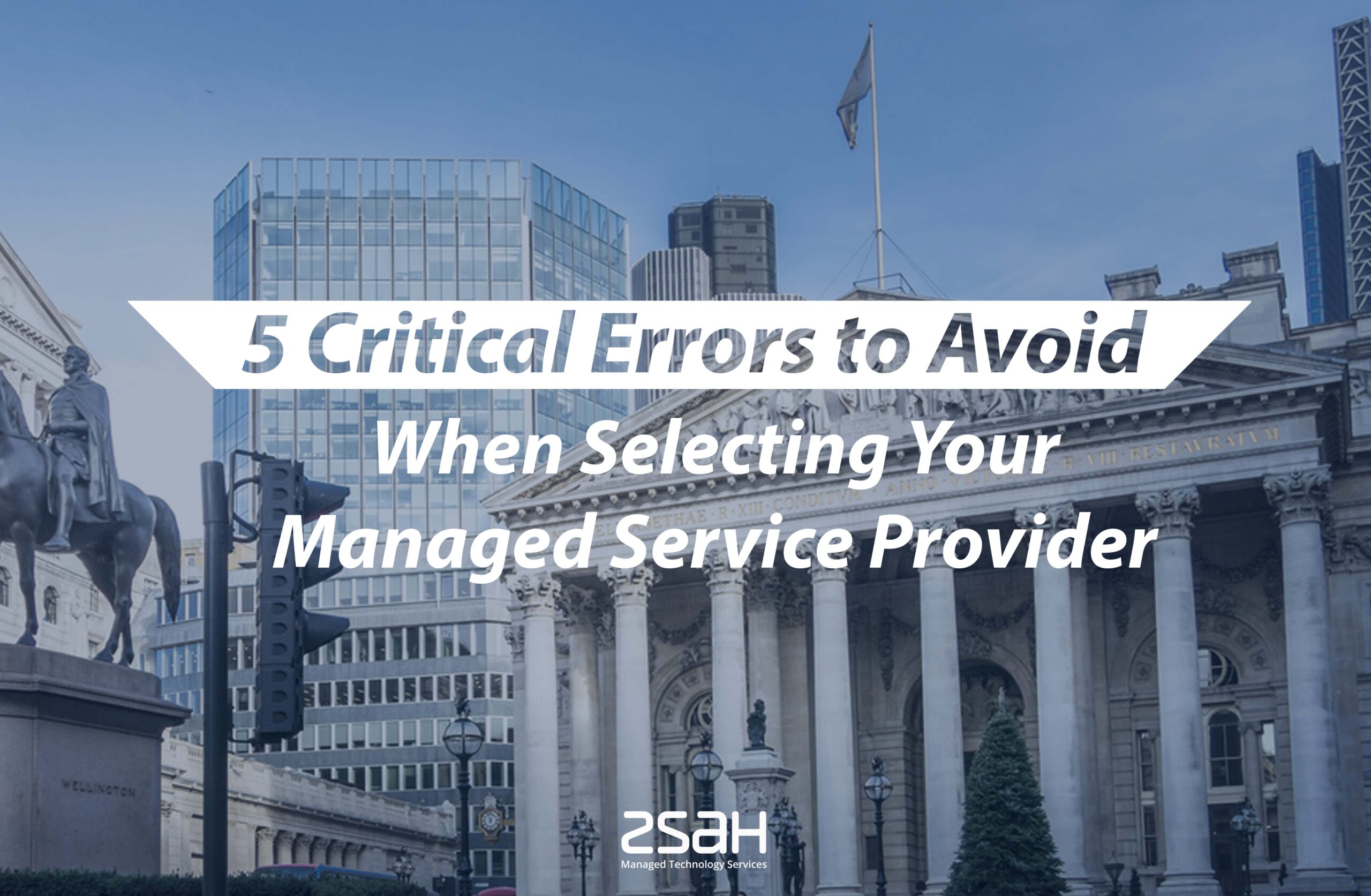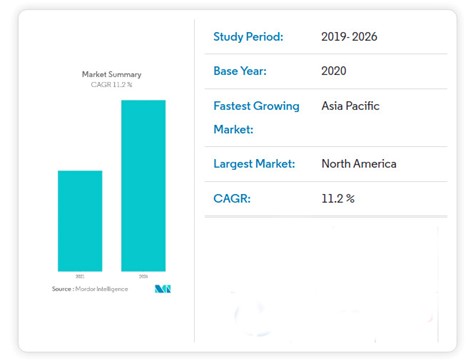5 Critical Errors to Avoid When Selecting Your Managed Service Provider

Businesses are finding themselves under increasing pressure with their in-house IT. As customers demand personalised services, employees' needs for support and projects grow more complex. In some cases, an organisation can't keep up without assistance from managed service providers – IT and Technology Partners – who specialise at simplifying processes while getting everything done efficiently. Managed services free your staff from performing time-consuming tasks, allowing them to focus on the core business operations instead.
In a world where technology moves at breakneck speed, managed services providers (MSPs) have become integral to companies' IT environments. Research from Mordor Intelligence shows that the global managed service provider (MSP) market was valued at USD 152 billion in 2020 and is expected to grow at a CAGR of 11.2% to reach USD 274.20 billion by 2026. The implication is that managed services are here to stay.
(Image source: Mordor)
However, as with any service business, selecting a managed service provider is subject to certain levels of risk. In order to navigate the managed services terrain successfully and ensure your organisation gets precisely what it needs from its MSP without being led astray or getting ripped off by one of those looking for a quick cash grab, there are some critical errors you should avoid when selecting a managed service provider:
1. Basing Your Decision Solely on Price
You may be working within tight budget constraints, but that shouldn't mean going too cheap when choosing an MSP because this could end up costing more in time wasted setting things right down the road. If you can bring more funding into play initially, then do so, but if you're working with a tight budget, choose an MSP who will work within these parameters.
Price is the last thing you should consider. Ensure you compare apples to apples when assessing different providers and consider the cost at the tail end.
2. Ceding all Control and Responsibility
Relinquishing all control is never a good idea. Even if you outsource all day-to-day application security activities to a managed services provider, you remain responsible for your software security strategy. If anything goes wrong, it will be your name customers and the public will remember, not that of the managed services provider.
Choose an MSP who provides you with complete control over test timing and depth. In addition, ensure you have full visibility of testing progress and outcomes, as well as continuous communication with your MSP. Providers that care about transparency offer cloud-based monitoring systems so that clients can obtain an overall picture of test results at any time.
3. Choosing an MSP That Doesn't Understand Your Business and Network Infrastructure
Managed services providers need to understand how your network functions and what can or cannot happen within its parameters for them to provide you with proper support. If they don't know anything about your business's needs, structure and processes – or, worse yet, if they don't even bother asking questions before taking on a customer – this is likely going to lead toward problems later on when things aren't working as expected.
MSPs who offer managed service packages must have good knowledge of what happens under the hood at all times for them to troubleshoot effectively when an incident arises.
Ensure your managed service partner understands your business model and network infrastructure before signing on any dotted lines. If they can't provide proof of their ability in this area, look elsewhere.
On top of that, make sure your managed services provider is ready to commit resources into understanding exactly how things run in your company. This way, they'll be able to provide solutions that will work for your specific needs.
4. Failure to Understand Service Level Agreements (SLAs)
All managed service packages come with a Service Level Agreement (SLA) that clearly defines what is being provided to meet your business needs. Take time to understand what is covered in your managed services agreement and what you are responsible for.
Not only should the SLA define outages that will be reimbursed to your business, but it should also clearly state how quickly a managed service provider will respond when an outage occurs. For example, if there's no clear time frame in the managed services package, consider this a red flag.
If you're looking at managed network solutions, make sure "network availability" or uptime percentage is guaranteed within the SLA so if unplanned downtime happens due to faulty equipment or poor management of resources on behalf of your MSP, they'll compensate accordingly. Also, make sure any managed IT packages offer proactive maintenance as opposed to reactive support.
Ensure there's complete transparency between yourself and your MSP when the time comes for them to provide proof of compliance with an SLA.
5. Assuming All MSPs are the Same
Finally, managed services providers may all offer similar packages, but they don't necessarily provide customers with an equal quality of experience. Therefore, you need to verify managed services provider performance and customer service quality quickly, so always ask the right questions and seek industry references. In addition, managed services providers will have different levels of managed IT service packages, so you need to be fully aware of what is included in the managed services contract.
Why Choose zsah?
When it comes to managing your data, you need a team that has both local and global expertise. zsah offers all of this with its managed services solution – wholly owned by the company in England but designed for customers worldwide who want constant access no matter where they are located or what type of infrastructure they use (i.e., hosted, on-premises, or public cloud (AWS, Azure, etc.)).
You'll get dedicated account managers and engineers on a first-name basis from start to finish, which ensures consistent, high-quality service.
Our key service differentiators include:
- A central London location: Our service desk engineers will assist your staff with our full range of support services, including remote assistance and on-site visits. In a central London-based service desk, we have highly qualified service desk engineers that can help you with any technical concerns you may have.
- Tier 3/4 Data Centres: Tier 3/4 data centres, management extending to on-premises equipment, and various third-party monitoring tools are all available.
- 24/7 Support: zsah offers a help desk service, accessible by email, phone, or instant chat, allowing clients to request support 24 hours a day, 7 days a week, 365 days a year.
- Competitive Service Levels: Our service level guarantees offer competitive service levels with fast reaction times (15 minutes when the problem is severe or has a significant impact) and regular status updates and contact.
- Third-party Supplier Management: Service level agreements (SLAs) are closely tracked and reported on. We can monitor not just ours but also those from your other technology suppliers.
- Disaster Recovery: We'll evaluate your IT infrastructure and give you the best Disaster Recovery solution for your company.
- DBA as a Service: We offer a fully managed database administration service.
- Software as a Service: We provide custom application hosting and environment management for software and SaaS providers.
For more information on our managed services offering, don't hesitate to contact us for a free consultation.


